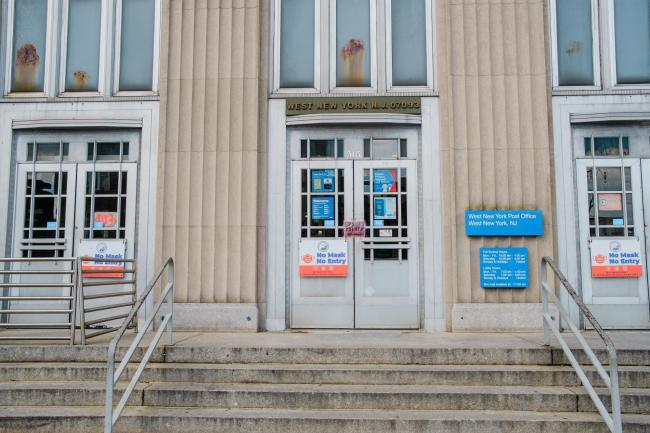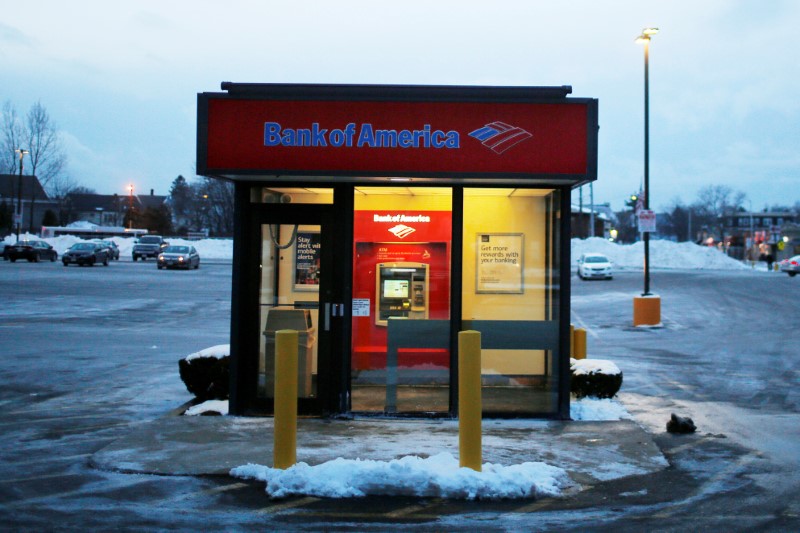(Bloomberg) -- The biggest U.S. banks criticized a pair of proposals designed to help consumers who don’t use their services.
Lawmakers’ recent proposals, such as opening bank branches in post offices or offering Federal Reserve checking accounts to every U.S. consumer, may not work to resolve the problem of the so-called unbanked Americans, industry trade groups argued in a paper published Tuesday.
Instead, they urged officials to consider creating new types of identification that consumers can show to access financial services, or encouraging Americans to open low-cost bank accounts when they’re enrolling to receive government assistance.
“Instead of establishing a large, duplicative and potentially expensive banking infrastructure to create bank accounts through the Federal Reserve or the U.S. Postal Service (postal banking), there are more effective and less costly ways to address the unbanked/underbanked challenge,” the trade groups said in a statement accompanying the paper.
The groups represent U.S. banks and credit unions and include the Clearing House, the American Bankers Association, the Consumer Bankers Association, the Credit Union National Association, the Mid-Sized Bank Coalition of America and the National Bankers Association.
Racial Gap
For years, lenders have offered low-fee checking accounts as part of an industrywide initiative known as Bank On. But those efforts haven’t been a total success: Consumers still spend billions each year in overdraft and other account fees, and 7.1 million households across the country continue to lack access to a bank account.
While that number has declined in recent years, the proportion of unbanked Black and Hispanic households remains higher than the national average. As protests over racial inequality engulfed the U.S. last year, policy makers and banks alike vowed to do more to ensure communities of color could access low-cost financial services as a way to close the persistent racial wealth gap.
“Obviously it’s important because of the spotlight last year on all of the horrific events that our country endured,” Alice Rodriguez, managing director and head of JPMorgan Chase & Co (NYSE:JPM).’s community-impact organization, said in an interview. “Several years ago we absolutely saw the need to lean in more, particularly from a financial-health perspective, and that led us down this path of the unbanked and the underbanked.”
Without access to traditional financial services, consumers often turn to non-bank competitors, which typically charge higher rates or bigger fees. Check-cashing companies, for instance, can take as much of 10% of a check’s value for their services. Relying on prepaid debit cards can cost consumers as much as $300 a year.
Hearings Planned
The paper comes just days before members of the Senate Banking Committee and House Financial Services Committee plan to question the chief executives of the largest U.S. banks, including JPMorgan and Goldman Sachs Group Inc (NYSE:GS)., in a pair of virtual hearings.
President Joe Biden and Democratic lawmakers including Representative Maxine Waters (NYSE:WAT) and Senator Bernie Sanders have been advocating for the U.S. Postal Service to begin offering banking and for the Fed to provide checking accounts to consumers. They say those solutions would create a widely available, lower-cost way for Americans to access financial services.
In Tuesday’s paper, banking trade groups argued such proposals don’t account for the costs that would be tied to the government operating “what would be the largest retail-banking operation in the United States.” They also said a consumer’s proximity to a bank branch or post office location has historically been unrelated to their banking status.
“The importance of physical access to financial-inclusion status may be a less important factor than is often portrayed, or may be important for certain alternative financial products and services, such as check cashing, but not for banking status and credit,” the groups said in the paper.
Instead, they argued, many consumers find it costly to obtain a driver’s license or passport -- documentation often needed to open a bank account. The trade groups urged policy makers to study some of the underlying households that remain unbanked.
“The best way to determine how to make further progress is really to look at the reasons why individuals are underbanked or unbanked to examine what actually has been working to drive down those rates,” Rob Hunter, deputy general counsel of the Clearing House, said in an interview. That analysis should also examine “what further work needs to be done that the private sector can’t do.”
©2021 Bloomberg L.P.

